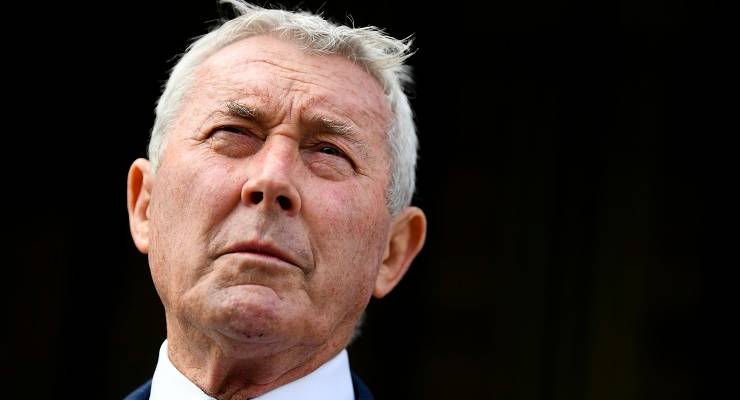
In a significant defeat for the federal government and former attorney-general Christian Porter, the Supreme Court of the ACT has overturned secrecy orders demanded by Porter in his prosecution of Bernard Collaery, which would have ensured much of the trial was conducted in complete secrecy and evidence would have been hidden not merely from the public but from Collaery and his lawyers.
Judges Murrell, Burns and Wigney overturned trial Judge David Mossop’s decision to grant Porter’s application to hide evidence against Collaery, and witness evidence produced by Collaery, via national security orders made by Porter under the National Security Information (Criminal and Civil Proceedings) Act 2004. The appellate court ruled that
public disclosure of information relating to the truth of the identified matters would involve a risk of prejudice to national security. However, the court doubted that a significant risk of prejudice to national security would materialise. On the other hand, there was a very real risk of damage to public confidence in the administration of justice if the evidence could not be publicly disclosed. The court emphasised that the open hearing of criminal trials was important because it deterred political prosecutions, allowed the public to scrutinise the actions of prosecutors, and permitted the public to properly assess the conduct of the accused person.
The ruling threatens to derail the entire trial of Collaery for conspiracy and revealing information because the government is desperate to keep embarrassing details of the actions of the Howard government, and the Department of Foreign Affairs and Trade, out of the public eye. Under John Howard and Alexander Downer, the Australian Secret Intelligence Service illegally bugged the Timor-Leste cabinet room in an effort to secure an advantage in negotiations with the fledgling state over access to resources under the Timor Sea.
Downer and the then-head of DFAT Ashton Calvert later took positions with a major beneficiary of the deal, Woodside.
If details of those events are made public, the Coalition will face embarrassment and further questions about its vexatious pursuit of Collaery and Witness K, a former ASIS officer who in June was given a three month suspended sentence for his role in the revelation of the bugging, which he did so as part of a workplace dispute with ASIS.
It is expected that current Attorney-General Michaelia Cash — who has her own links to the issue via her previous employment with major law firm Freehills, which worked with ConocoPhillips on Timor Gap matters — will appeal the ruling.
Crikey understands that there is intense resentment toward Collaery within the federal Coalition and a determination to pursue him to the fullest extent possible for his revelation of the crimes of the Howard government.








Hah! Best news I have had all week.
Excellent news. This shameful episode in Australia’s history needs to see the light of day and a good man, Mr Collaery, needs to be allowed to get on with his life
Thanks for keeping this line of reporting going, much appreciated.
Meanwhile, the crimes of the Howard government go unpunished. The coalition is very good, using the dead cat tactic and all its variations, at drawing attention away from its crimes and misdemeanours.
It would make far more sense if the temporary attorney general brought down a Bill for a crime and misconduct body with a few teeth and set them on the players in that disgraceful issue in our history.
OH, no this lot have no intention of having an integrity commission or a crime and misconduct commission.
Great outcome. Let’s not forget about Julian Assange in the modest celebrations.